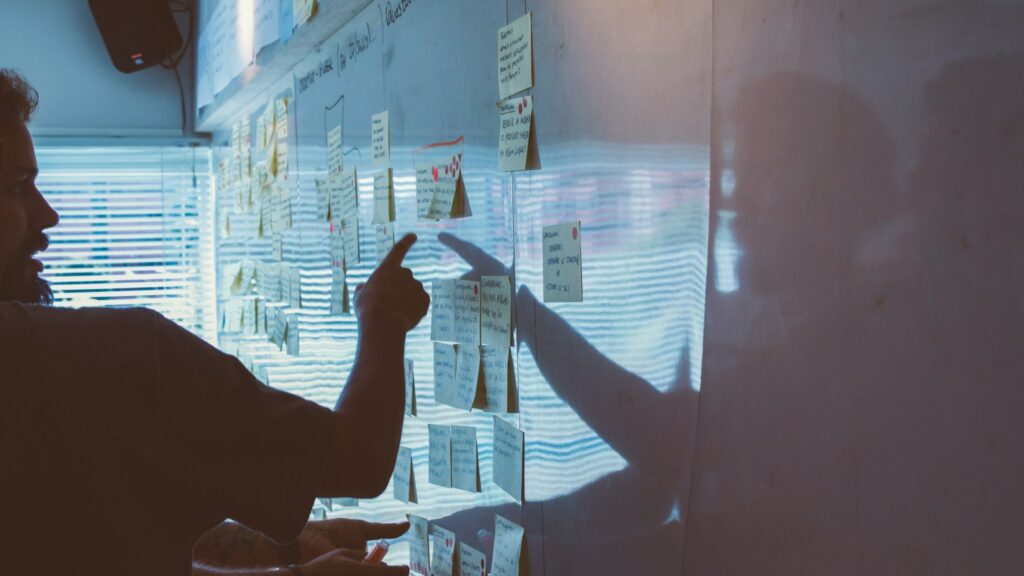 Graham O’Connell looks at the challenges of stepping into senior leadership, and reveals interesting research with those from Base Camp – a development programme for those entering the senior civil service.
Graham O’Connell looks at the challenges of stepping into senior leadership, and reveals interesting research with those from Base Camp – a development programme for those entering the senior civil service.
“It’s only when you hitch your wagon to something larger than yourself that you will realise your true potential and become full-grown.” These are the words of senator Barack Obama in 2006 talking about leadership. He seems to be practicing what he preaches. But what a big step up to being President. Undoubtedly some leadership skills and mantras hold true at any level, and some need to be new and different – for him and us – when we make a step change to a whole new level of leadership.
 “The ascent to certain positions, especially where you need to look beyond your own organisation, also requires a degree of reorientation, inspiration and interconnection to take you beyond base camp towards the summit.”
“The ascent to certain positions, especially where you need to look beyond your own organisation, also requires a degree of reorientation, inspiration and interconnection to take you beyond base camp towards the summit.”Making the ascent
In the Civil Service there is a seminal programme called Base Camp for those entering the Senior Civil Service – not quite presidential in status but a big step up nevertheless. About 3,500 people are employed at this level in 55 government departments and agencies across the country. They include doctors, lawyers and scientists, as well as policy advisors and managers. When entering this higher echelon you stop being a mid-level leader working just for your own organisation and you join an elite cadre of senior leaders that form the senior leadership team for the whole civil service with a broad, corporate focus as well as having critical responsibilities within the department where you are based.
Our research with people on Base Camp has revealed interesting insights into what it is like to become a senior leader. The enduring truisms about leadership do seem to hold good, which means that many skills already learnt continue to be of value. But the character and nature of leadership at this level, as you become a leader of leaders, not a leader of followers, also brings particular challenges.
The challenge of delegation
Some of the strengths people bring with them include a focus on the overall mission, a strong sense of personal responsibility and a commitment to encourage others. What they wrestle with most is scanning the external environment and keeping up to date with current thinking, delegating – really letting go – and working with innovation. One might speculate that there are connections between these issues: a strong sense of personal responsibility and difficulty delegating; a strong focus on organisational mission but too little outward focus.
In March we also undertook a short ‘pulse’ survey to get the views of line managers and administrators. Interestingly, they tend to echo the views that senior leaders have of themselves. They also feel that the leadership culture has become stronger in almost every regard in recent years. It has specifically become more performance orientated. The area with least change seems to be the degree to which leaders are unified, though even this is neutral rather than negative. Whilst one respondent said: “You can definitely see changes in behaviour and the culture shift of the organisation” another described recent changes as “just a shift of approach rather than an improvement”. Only 4% of respondents felt that leadership development over the last 10 years had made no difference (1% said it had made things worse!), which must come as a relief to those working in this field, but many of those surveyed felt that there was still room for more and better development.
How to reach the summit?
One could argue that leadership development is all about gaining skills and, as you get promoted, applying those skills in new contexts. OD consultants will tell you that it is also an organisational intervention, not just a training course. But the ascent to certain positions, especially where you need to look beyond your own organisation, also requires a degree of reorientation, inspiration and interconnection to take you beyond base camp towards the summit.
The research reveals more than can be told here and, in any event, the specifics will vary according to different organisational contexts. But what shines through is that there are some steps on the ladder that are bigger than others. And these are particular occasions when you have to let go of some past practices – including some of the things that got you where you are today – in order to create more space for tackling new challenges. Challenges like leading across organisational boundaries, developing the leaders that are hot on your heels and tackling those so-called ‘wicked problems’.
Obama has more than his fair share of ‘wicked problems’, but as he said in his inaugural speech, you need the involvement of others. If there is one lesson senior leaders are keen to grasp, it is how best to do just that.
Kay Evans is a leadership development consultant and Graham O’Connell the head of organisational learning and standards at the National School of Government
Further reading:
The tomorrow people: preparing the next generation of government leaders
To read Graham’s previous features on site, click on the following titles:
Latest learning theory looks set to revolutionise training – look at the date of publication!
L&D 2009: Survival of the fittest thinkers
 Graham O'Connell looks at the challenges of stepping into senior leadership, and reveals interesting research with those from Base Camp - a development programme for those entering the senior civil service.
Graham O'Connell looks at the challenges of stepping into senior leadership, and reveals interesting research with those from Base Camp - a development programme for those entering the senior civil service."It's only when you hitch your wagon to something larger than yourself that you will realise your true potential and become full-grown." These are the words of senator Barack Obama in 2006 talking about leadership. He seems to be practicing what he preaches. But what a big step up to being President. Undoubtedly some leadership skills and mantras hold true at any level, and some need to be new and different – for him and us – when we make a step change to a whole new level of leadership.
 "The ascent to certain positions, especially where you need to look beyond your own organisation, also requires a degree of reorientation, inspiration and interconnection to take you beyond base camp towards the summit."
"The ascent to certain positions, especially where you need to look beyond your own organisation, also requires a degree of reorientation, inspiration and interconnection to take you beyond base camp towards the summit."Making the ascent
In the Civil Service there is a seminal programme called Base Camp for those entering the Senior Civil Service – not quite presidential in status but a big step up nevertheless. About 3,500 people are employed at this level in 55 government departments and agencies across the country. They include doctors, lawyers and scientists, as well as policy advisors and managers. When entering this higher echelon you stop being a mid-level leader working just for your own organisation and you join an elite cadre of senior leaders that form the senior leadership team for the whole civil service with a broad, corporate focus as well as having critical responsibilities within the department where you are based.
Our research with people on Base Camp has revealed interesting insights into what it is like to become a senior leader. The enduring truisms about leadership do seem to hold good, which means that many skills already learnt continue to be of value. But the character and nature of leadership at this level, as you become a leader of leaders, not a leader of followers, also brings particular challenges.
The challenge of delegation
Some of the strengths people bring with them include a focus on the overall mission, a strong sense of personal responsibility and a commitment to encourage others. What they wrestle with most is scanning the external environment and keeping up to date with current thinking, delegating – really letting go – and working with innovation. One might speculate that there are connections between these issues: a strong sense of personal responsibility and difficulty delegating; a strong focus on organisational mission but too little outward focus.
In March we also undertook a short 'pulse' survey to get the views of line managers and administrators. Interestingly, they tend to echo the views that senior leaders have of themselves. They also feel that the leadership culture has become stronger in almost every regard in recent years. It has specifically become more performance orientated. The area with least change seems to be the degree to which leaders are unified, though even this is neutral rather than negative. Whilst one respondent said: "You can definitely see changes in behaviour and the culture shift of the organisation" another described recent changes as "just a shift of approach rather than an improvement". Only 4% of respondents felt that leadership development over the last 10 years had made no difference (1% said it had made things worse!), which must come as a relief to those working in this field, but many of those surveyed felt that there was still room for more and better development.
How to reach the summit?
One could argue that leadership development is all about gaining skills and, as you get promoted, applying those skills in new contexts. OD consultants will tell you that it is also an organisational intervention, not just a training course. But the ascent to certain positions, especially where you need to look beyond your own organisation, also requires a degree of reorientation, inspiration and interconnection to take you beyond base camp towards the summit.
The research reveals more than can be told here and, in any event, the specifics will vary according to different organisational contexts. But what shines through is that there are some steps on the ladder that are bigger than others. And these are particular occasions when you have to let go of some past practices – including some of the things that got you where you are today – in order to create more space for tackling new challenges. Challenges like leading across organisational boundaries, developing the leaders that are hot on your heels and tackling those so-called 'wicked problems'.
Obama has more than his fair share of 'wicked problems', but as he said in his inaugural speech, you need the involvement of others. If there is one lesson senior leaders are keen to grasp, it is how best to do just that.
Kay Evans is a leadership development consultant and Graham O'Connell the head of organisational learning and standards at the National School of Government
Further reading:
The tomorrow people: preparing the next generation of government leaders
To read Graham's previous features on site, click on the following titles:
Latest learning theory looks set to revolutionise training - look at the date of publication!




